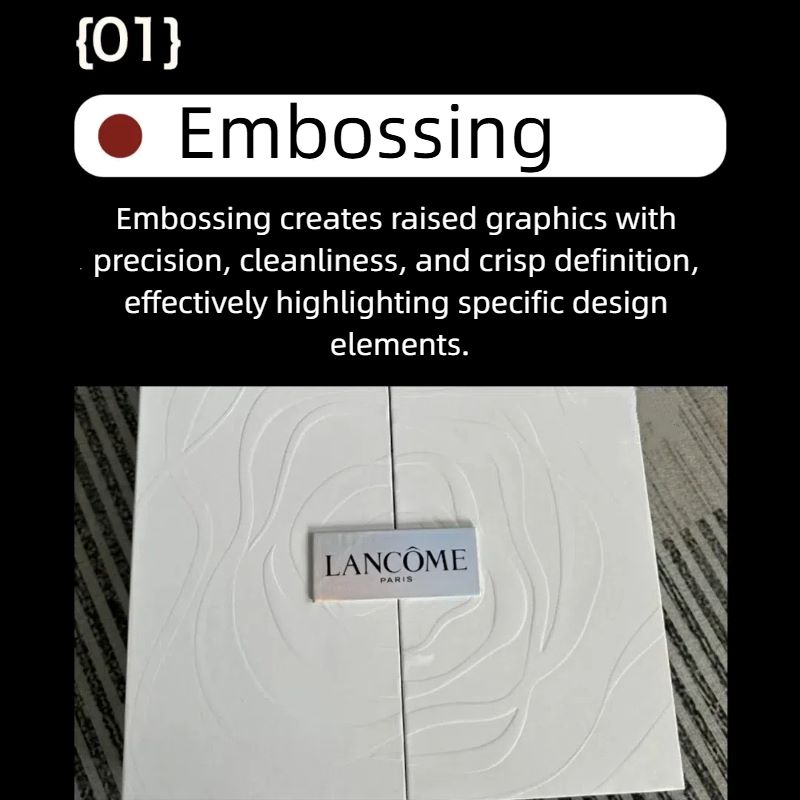

Embossing
Embossing is a specialty finishing technique that creates raised, three-dimensional designs on paper, cardboard, or other substrates. It adds tactile depth and visual prestige to printed materials.
How It Works:
Die Creation: A custom metal die (male) and counter-die (female) are precision-engraved with the design.
Substrate Preparation: Printed material is placed between the dies.
Pressure Application: Under high heat and pressure, the dies compress the substrate, permanently raising the design.
Result: A sculpted, tactile surface that catches light and shadows.
Key Applications
Premium Packaging: Luxury product boxes, wine labels, cosmetic sleeves.
Stationery: Business cards, letterheads, invitations.
Branding: Logos, monograms, security features on certificates.
Publications: Book covers, art portfolios.
Technical Considerations
| Factor | Details |
|---|---|
| Substrates | Works best on thicker stocks (≥220gsm): cardstock, kraft paper, leather, some synthetics. |
| Design Tips |
Use bold lines/solid shapes (fine details may not lift cleanly).
Avoid extreme gradients or fragile elements.
Combine with foil stamping for "foil embossing" effect.
Types |Single-Level: Uniform height (most common).
Multi-Level: Tiered elevations (e.g., mountains vs. foothills).
Scorching: Adds dark shadows via controlled burning.
Debossing: Recessed design (opposite of embossing).
Why Use Embossing?
Tactile Appeal: Engages touch and sight for memorable unboxing/experiences.
Perceived Value: Signals luxury and craftsmanship (e.g., Tiffany & Co. packaging).
Brand Differentiation: Stands out in competitive markets.
Subtle Sophistication: Elevates minimalist designs without color/ink.
Industry Terminology
Brass Dies: Most durable for long print runs.
Magnesium Dies: Cost-effective for short runs.
Register Embossing: Aligns embossed area with printed elements.
Blind Embossing: No ink/foil – pure texture only.